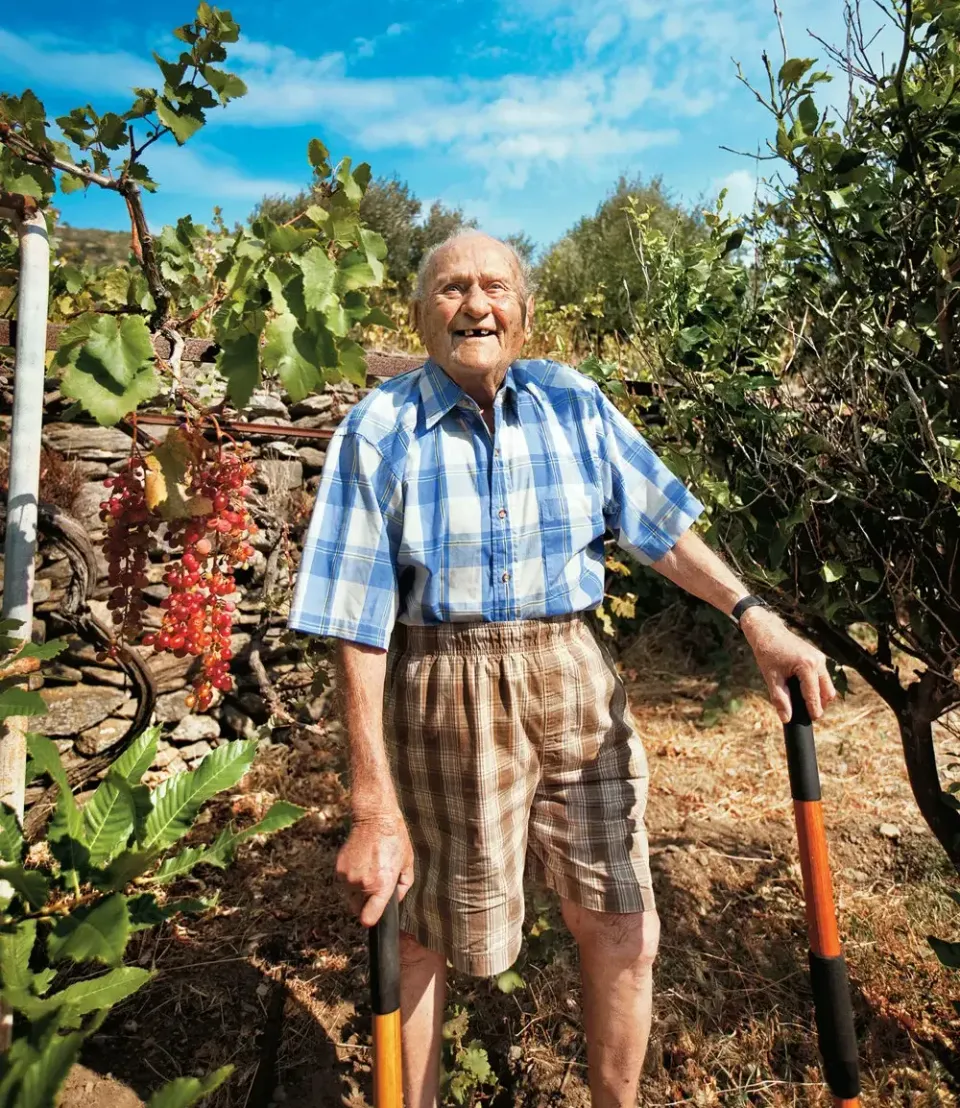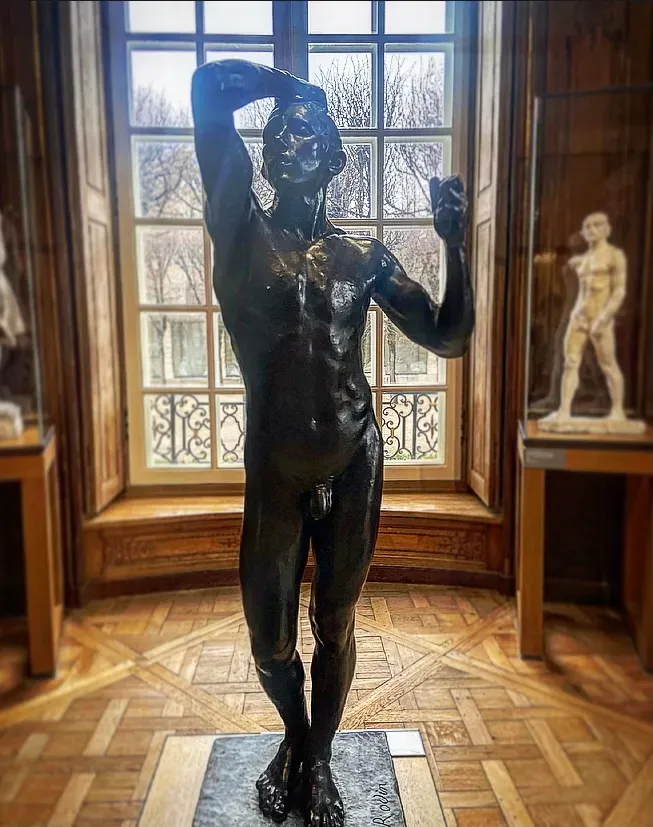Passion: The Breakfast of Millenials
Ideations brought forth by a society constantly fixated on high highs, and low lows outside of the angles of a pendulum bob can be dangerous for our soul, but honey for our ego.

The roots of passion and why it's left many Millennials confused and hanging on a branch.
Quote
"Working hard for something we don't care about is called stress; working hard for something we love is called passion." - Simon Sinek
In 2015 I participated in TechStars Startup Weekend: Health & Wellness Edition. The timing was perfect. I was living in NYC, my ambition was running on high as a fresh dietitian, NYU alumni, and a woman in a high-tech digital world that could use a little emotional maturity. EQ wasn't a buzz acronym quite yet, but words like "disrupt" adorned pins worn by young professionals all trying to get the next round of seed funding, dreaming of being flown out to Silicon Valley (but also being flown back), because, after all, it was New York.
I've taken on so much free work in my life, not pro bono or volunteer work, no, that's the good kind of free work, the important kind. What I mean is taking my lunch break to meet with potential investors, interning over 40 hours a week to gain experience and paying to do so, and doing gratis work for 20-something-year-old programmers who repeatedly demanded to know, "How do you know this stuff?" Well, easy I thought. I'm a dietitian. I have an MS degree in Nutrition. I love this stuff so much that I read it breathe it and eat it.
They needed my brain to program their new nutrition startup, and I needed them to integrate into a new mode of working. One without all the vacation day restraints (but we would work all the time anyway), the florescent lighting (like free beer at a WeWork was any better for the epidermis), and one where everyone surrounding me had more of that pazazz, you know, that Passion.
Later on down the road I would find myself thinking, What an asshole.
You aren't an asshole, why are you being down on yourself?
Not me.
Then who?
Passion.
Passion for Breakfast
I love breakfast. Breakfast for dinner, and brunch but with breakfast food (tardy breakfast). It is my favorite meal of the day, and what has set me apart from my new local neighbors here in France who tend to have something simple and small for breakfast choosing lunch as their lover.
Passion has been the breakfast of champions since the 1970s when the likes of "Finding Your Passion" started to rise to fame. Baby Boomers had gone through puberty and were all grown up, and with the effects of WWII a thing of the past and the Vietnam War being pushed out by flower power, the attitude was an optimistic one. One where you believe that if you work hard, you will taste the fruits of your labor. Yes, it is due to the parents of millennials that passion became fashionable.
Wow, I thought the Millenials were the ones to blame for that.
Not this time. The word passion may roll off the tongue of entrepreneurs and our elders far and wide, but the passion we know today is not the root of passion. Before we move forward, let's go back.
The history of passion
Brad Stulberg and Steve Magness, authors of The Passion Paradox: A Guide to Going All In, Finding Success, and Discovering the Benefits of an Unbalanced Life provide a great history lesson on passion. The Latin word for passion is passio, which means...
Oh, I bet I can guess. It means fanatical love.
Not quite. It means suffering.
Tomato, tomahto,
According to Professor Timothy K Beal, Chair of the Department of Religious Studies at Case Western Reserve University, "The word (passio) was singularly related to Christ, and it was completely tied up in his suffering." If you were to tell someone at that time that they "were so passionate," it would be quite the dis. But language evolves over time and by the 11th century, passio started to spread its wings and was used to describe all people's suffering, both in the body and mind. It wasn't until the European Renaissance (14th-17th century) that passio eventually metamorphosed into passion; or as Stulberg and Magness explain it, from "suffering to rage to love to overwhelming desire."
During the Elizabethan Era (1567-1616) Shakespeare used the word passion to mean an emotion of romantic lust and desire and by the 18th century passion was no longer synonymous with desire from human to human, but also the love for an activity—the quest for an activity.
Aha, the pursuit to find your passion and make something out of it. This sounds familiar.
Exactly. And by the time Gen X and Millenials ripened into young professionals, there was a tectonic shift from security that the Baby Boomers settled into, despite their "can do" attitude into the realization of the self's higher potential. What these generations may have forgotten was the root of the matter, that passion can also mean suffering. But we didn't want to be told that, we wanted to figure that out for ourselves. And so we listened to the voices of social media and we went out there to investigate our passion.
Passion spectrum
Let's get this out of the way first. Not everyone is going to be a passionately passionate person. Not everyone has to work in a career that they are passionate about.
But that's what they said I had to find...
Yes. I know. "They" tell you to find what you are passionate about and make that your career. This is not bad advice, but it's not good advice either. It's mediocre at best, and it's pushy. A quick Google search for the definition of passion shows us that passion is 1) a strong and barely controllable emotion, and 2) the suffering and death of Jesus. Looking at these two definitions, ask yourself, are you passionate about your job, or what you are studying at school to then have a career in? If not, do you feel bad about that? Like you are lost, without purpose, and you need to do something radically different to find it?
No. Uh, yeah. Yes! Yup. Sigh, how did you know?
Because you are not alone. Whether following your passion or finding your purpose these buzzwords are top of the SEO charts, and they are coming for you. I like how Stulberg and Magness classify passion as a spectrum. It reminds me of how I prefer to describe balance as a pendulum, swinging back and forth, anything beyond the furthest points left or right, to and fro, tick and tok, are the extremes, the obsessions. Yet the space between where the bob swings back and forth, this area holds space for balance. When we try to achieve perfect balance, dead center, no movement going side to side, and we try so hard to maintain this in pursuit of our passion, then we are setting ourselves up for burnout. The space between the two highest points on a pendulum is where the possibility of living (passionately) happens.
How very philosophical of you.
It makes sense, no?
No, yeah, it does! It's like wiggle room. Similar to the number on a scale, weight maintenance does not mean you stay at one number all the time.
Exactly. You are on fire today.
Thanks, Z. What else do they talk about in that book, The Passion Paradox?
The Passion Paradox
The amount of work, of passion, put into writing The Passion Paradox is quite impressive. A mix of stories, quotes, research, observations, and experience lead both Stulberg and Magness to address why passion in today's Western working habitat has become ambiguous. Why descending a path that has you hunting for your passion can make one a servant to external results and validation, which in a virtual reality world, may be dangerous.
Stulberg and Magness claim that "passion is fragile and must be handled with care." It's like a Grandfather clock passed down from generation to generation (Grandfather clocks are controlled via a pendulum by the way).
What are the chances...
Passion may be disguised as some external reward, but it is indeed an internal feeling. The reason why some of us may be more passionate than others has a little something to do with the conditions under our skin, specifically with the release of dopamine.
When we pursue something (or someone) and feel pleasure the neurotransmitter dopamine is released, also known as the "feel good chemical." It is released after eating a sugary snack, after exercise, doing drugs such as opiates and cocaine, and the potential to be released with every social media notification. Yet, some people are biologically insensitive to dopamine, so they need more to feel the effect, to stay motivated, and to keep on pursuing. It's the pursuit, the chase, that is more exhilarating than the thing being pursued, and when this is overdone, dare I say, biologically we become more sensitive to the effects of dopamine, much like the repeated use of doing drugs, so we need bigger and better things to pursue whether it be in love or business.
That sounds like addiction more than passion.
Potato, Potahto.
Those who are born with an insensitivity to dopamine are inclined to feelings of passion and obsession. Those who are not born with these inborn traits are not off the hook. They too can become hooked to the chase and the risk of cyclic behavior.
This is the biology of passion what about the psychology behind it? We have our genes, which cannot be changed, but then we have the environment, which we do have more control over. The "fragility" of passion is a term coined by Sigmund Freud and further explored by Professor Alan St Clair Gibson, PhD, MD, of the University of Essex who specializes in integrative neuroscience studying the connection of mind to body.
Right up your alley.
I know. I'm already a big fan.
Gibson's take on how suppressed and bottled up bad memories and experiences from the past is that when we do not address these memories; if we do not feel our feelings, they may eventually be “released through external drives or desires, often manifesting as the energy put forth toward an unrelated activity (and create a) fanatical attachment to projects and goals.”
So in other words, trauma fuels the fire for the passion we are told we need to find.. or to follow.
Yes, our demons from the past are capable of triggering future passion.
And, that's a bad thing why? I mean, I feel like there is some twist here.
Remember the passion spectrum? Passionately throwing ourselves into our passion or chasing down passion with all our might may also be a way to trample on our unruffled struggles, those bad memories, giving us a false sense of control. This is when passion can take a wrong turn and end up as obsession and this obsessive passion feels good, a hell of a lot better than feeling our feelings and dealing with the past. The same goes for people with addictions or addictive personalities. Trading one addiction for another (drinking for running for example), while running is proven to be much healthier if our new addiction goes unchecked we may find ourselves with a broken ankle or with other symptoms of overtraining such as insomnia and agitation. When one does not handle passion with care the pendulum is thrown off balance and the clock's tick goes off tock.
Aha, yeah that all makes sense- the biology and psychology of it all. Passion feels so pushy sometimes.
The illusion that we must find the "perfect" fit for us such as the perfect career or perfect love is a constraining mindset. People with this kind of belief often give up earlier because if the initial stages don't blow their minds then they call it quits and move on to the next best thing that will get their heart rate up. Stulberg and Magness go on to explain the benefits of "lowering the bar" from perfect to interesting. Find your interest. Be open-minded and not fixed-minded.
I remember a quote I read once that applies here. It said:
"In a society that profits from your self-doubt, liking yourself is a rebellious act."
I think the same goes for what society tells us about passion. In a culture that thrives off results and promotes instant gratification as a daily part of life the moment you take what Stulberg and Magness call a harmonious approach towards passion, you are an opponent to the gods of Silicon Valley. But what if this different mindset is the key that will set you free?
Nice Ted Talk, Boss.
For real though. To get better and not burnt out, to be more focused in the present moment, and to be motivated from within yourself and not by others (things and people) can feel pretty damn freeing.
Have you ever felt this Kelly— this free feeling?




